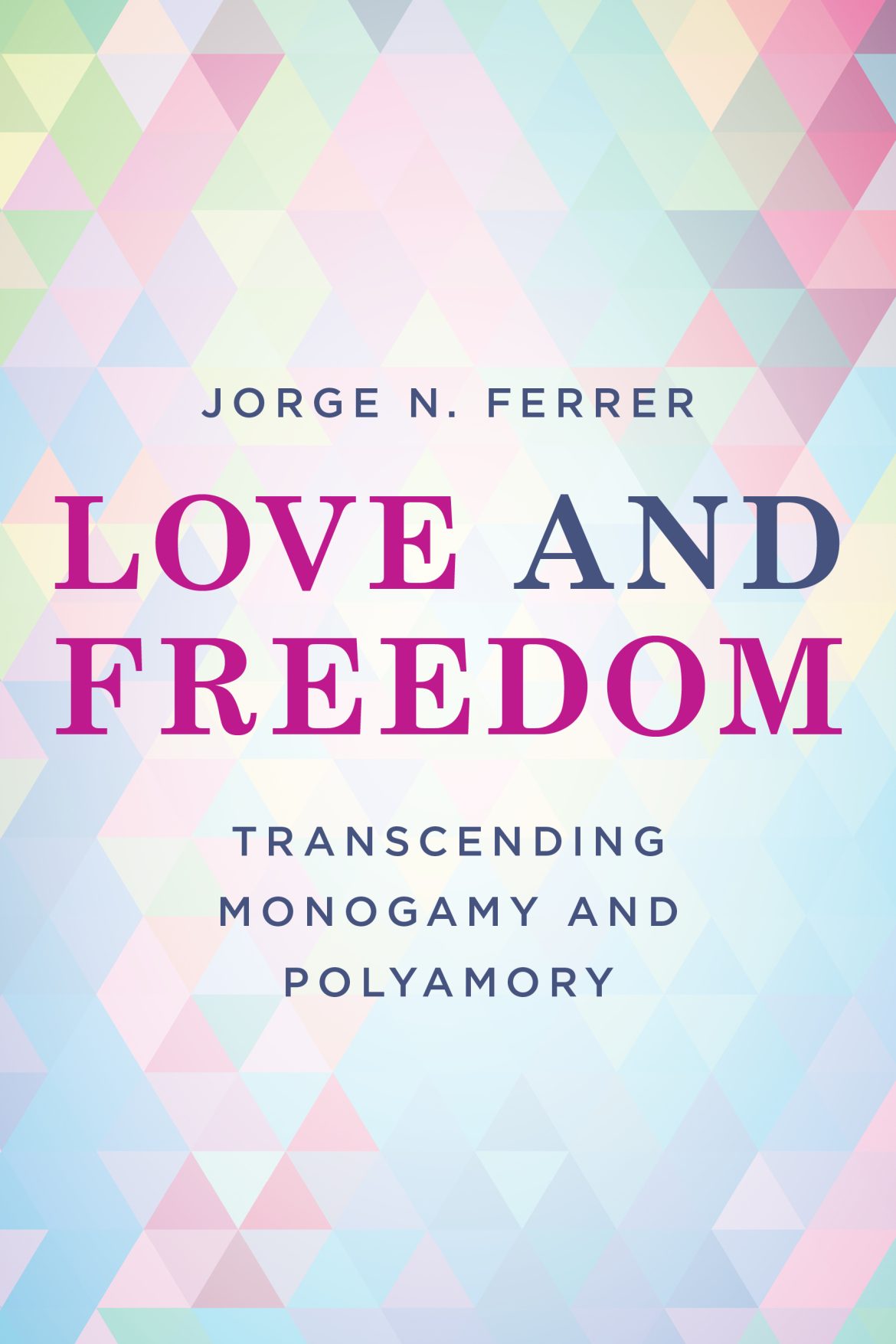Jorge Ferrer’s remarkable book, Love and Freedom: Transcending Monogamy and Polyamory, begins with the simple but profoundly radical idea that everyone has “the fundamental human right to love (any number of people as one desires)” (p. 10). The idea that love is a fundamental human right might seem simple on the surface. However, as Ferrer outlines in the book, evolutionary theories of human development, the law in most Western societies, Christian fundamentalist notions of gender and family, and the pervasiveness of mononormativity—the idea that monogamous coupling is the only moral, natural, and fulfilling way to do romantic and sexual intimacy, sends a clear message that we do not have a right to love whomever we want.
While we still live in a world that values monogamy over other relational styles, Ferrer suggests that new forms of intimacy such as polyamory and consensual non-monogamy are emerging as viable and legitimate relationship styles. In fact, he suggests, the old notion of one partner for life in a monogamous marriage-like relationship is no longer realistic. In other words, people in Western societies are already doing relationships differently from the prescriptions of old, so why not do them consciously and ethically?
Importantly, Ferrer is not equating relational freedom with non-monogamy or polyamory nor is he arguing against monogamy. Instead, he is advocating relational freedom for everyone no matter how or whom we love. True relational freedom, according to Ferrer, is allowing oneself and others to love whomever they want, whether that is one person or ten people. Whereas this proposal might sound like an anarchic “anything goes” for intimate relating, Ferrer stresses that such freedom needs to be exercised with both a caring sensitivity toward others and a commitment to eliminate social privilege and oppression.
If you’re like most people, you’re probably asking yourself, what about jealousy? Ferrer devotes an entire chapter to jealousy—its biological origins, socio-cultural supports, and religious justifications. Without skirting the issue, Ferrer makes an excellent argument for why acknowledging and working to overcome jealousy is good for the soul, relationships, and the world regardless of your preferred relational style. Not only does he provide some excellent ideas about how to practice relational freedom; he also outlines the benefits.
And it is the benefits of relational freedom that I find most compelling about this book. Ferrer argues that relational freedom has radical implications for how we relate to each other in and outside of our intimate relationships. He encourages us to think about what it means to put boundaries around relationships–whether that means limits on with whom we can form intimate connections or what kinds of relationships we are free to pursue. Boundaries are borders—not just around relationships, but also around political affiliations, religious sects, identities, and families. Most of us live our most intimate relationships as borders that divide us (the couple or family) and them (those outside the couple or family). What, Ferrer asks, would it mean to let go of the idea that we have a right to define or control who or how many others our partner(s) love? His answer: we all would be better off.
This goes for everyone. You might be surprised to learn that the numbers game (what is the correct number of people one should love) is also present in polyamorous relationships—one is either polyamorous (loving more than one) or monogamous (loving one). That is, sometimes polyamorists are not “free” to choose to transition into monogamy permanently or temporarily. Ferrer has referred to this as the “mono-poly wars”—polyamorists think they are superior because they love more than one person and “allow” their partners to do the same, and monogamists believe they are superior because they love only one person as God, evolution, and society supposedly say it should be so. In both camps, the presumption is you’re either polyamorous or monogamous. Ferrer offers a way out of either/or thinking by coining a new word: “novogamy”—new relationship forms. The term “novogamy” is meant to capture the diversity of relationship styles and structures that fall along or beyond a spectrum of monogamy and polyamory—within society or for any individual over the life course.
The title of the book says it all: Love and Freedom. Too often we equate freedom with being free from the constraints and responsibilities of love. It’s either love or freedom. Ferrer offers a way to have it all—love and freedom no matter what kind of relationships you want or have. For those of you who are perhaps curious about but not familiar with polyamory, consensual non-monogamy, or the “mono-poly wars,” this book offers a cogent and thorough explanation of all those things and more. More important, if you have never given polyamory a second thought or if you’ve been polyamorous your entire life you will find much in this book that both challenges and inspires.
